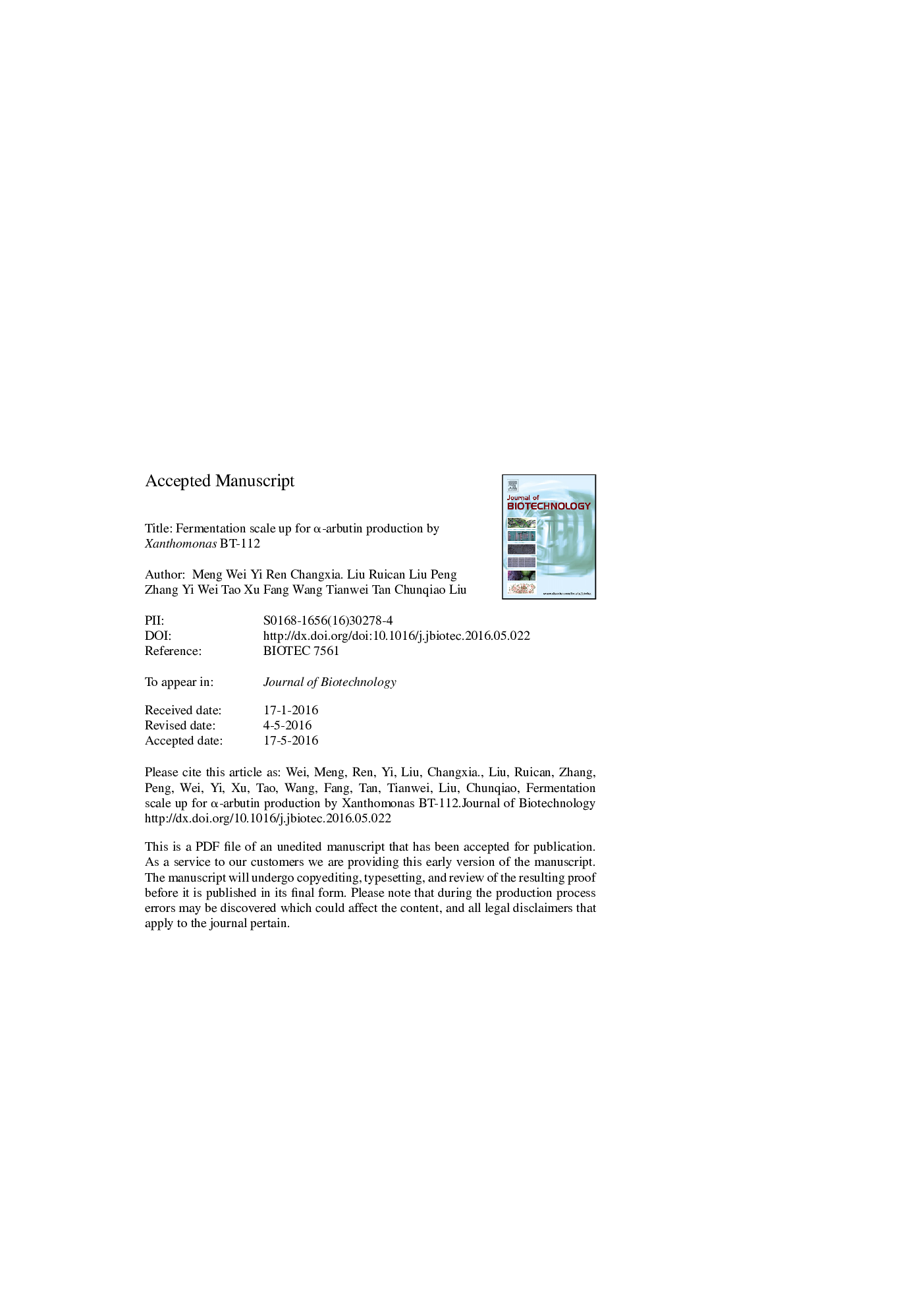| Article ID | Journal | Published Year | Pages | File Type |
|---|---|---|---|---|
| 6490507 | Journal of Biotechnology | 2016 | 23 Pages |
Abstract
α-Arbutin is a glycosylated hydroquinone that has an inhibitory function against tyrosinase. The aim of the present study is to develop an efficient and inexpensive method for large-scale production of α-arbutin by using Xanthomonas BT-112 as biocatalyst. To accomplish this goal, various surfactants were tested to enhance the α-arbutin production, and the optimal operational conditions for 30 L jar fermenter were scaled up for a production level of 3000 L with using a constant volumetric oxygen transfer coefficient (KLa) and the volumetric aeration rate per volume unit (Q/V) as scale-up criteria. Under the optimized conditions, the α-arbutin produced in the presence of 0.4% (w/v) Tween-80 was 124.8% higher than that of the control, and the yield of α-arbutin in 3000 L fermenter was 38.2 g/L with a molar conversion ratio of 93.7% based on the amount of hydroquinone supplied. This result is comparable to the results from laboratory-scale fermenter. Hence, 100-fold scale-up was successfully achieved.
Related Topics
Physical Sciences and Engineering
Chemical Engineering
Bioengineering
Authors
Meng Wei, Yi Ren, Changxia Liu, Ruican Liu, Peng Zhang, Yi Wei, Tao Xu, Fang Wang, Tianwei Tan, Chunqiao Liu,
